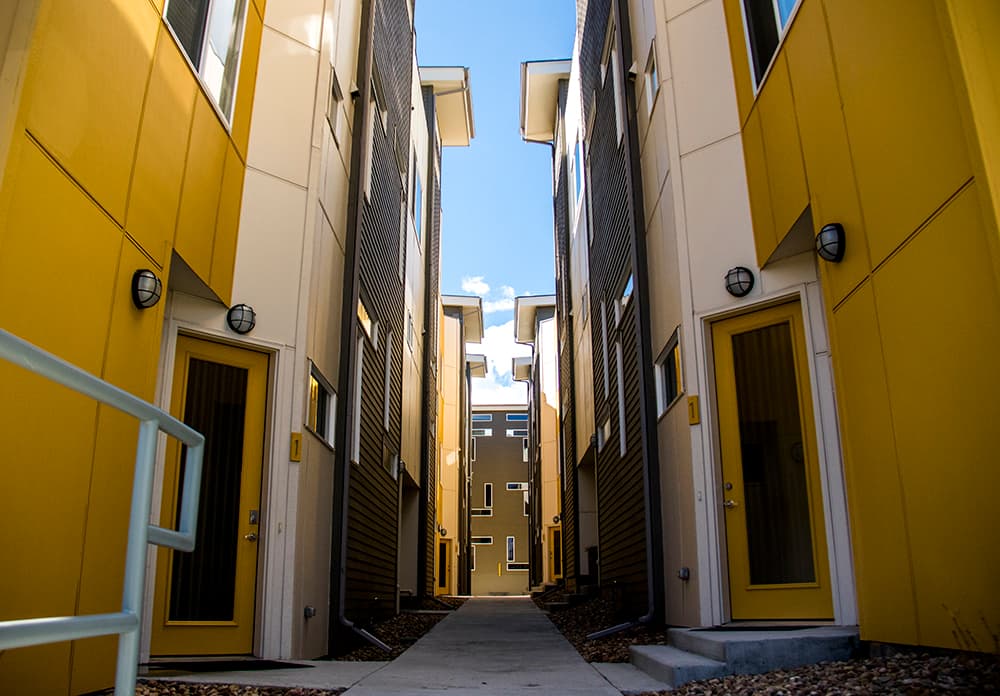The Denver City Council just voted to end the era of the slot home, implementing a temporary moratorium that will likely bridge the gap to a permanent ban.
With a unanimous vote on Monday night, the elected officials said that, starting this week, the city will no longer accept applications to build the much-criticized residential structures, which have spread for years throughout northwest Denver and other gentrifying areas.
Later in the year, the council will consider a more comprehensive set of rules that will offer up some alternatives for developers. But some council members wanted to act faster, fearing that developers would rush to build more slot homes while they're still allowed.
Slot homes are potentially more profitable for builders, since they can allow more residential units on a typical piece of land. They are criticized because they don't look like a typical home, and they often face "away" from the street, arguably harming the feel of a neighborhood.
The moratorium and ban will not affect existing slot homes. They also won't affect any proposals submitted already.
The moratorium only applies to slot home-style designs, according to Alexandra Foster, spokeswoman for Community Planning and Development.
"A project utilizing one the of forms that’s referenced in the moratorium can get approval as long as it’s not doing a slot home configuration. So non-slot home projects should not see delays as a result of the moratorium," she wrote in an email to Denverite. (Earlier, city staff had offered a different description of the moratorium, but this is the latest explanation that we've received.)
How we got here:
Council members Wayne New and Rafael Espinoza were the first to push for the moratorium. Denver will stop accepting developers’ design applications for slot homes on March 14.
“It effectively ends the use of the slot home form in its most egregious way sooner rather than later, which in the public’s view can’t happen soon enough and should have happened years ago, to be quite honest,” Espinoza said in an earlier interview.
The city’s Slot Home Task Force voted unanimously in support of the change. Even the developers on the committee agreed, likely because they feared that the city council could take a harsher action instead.












